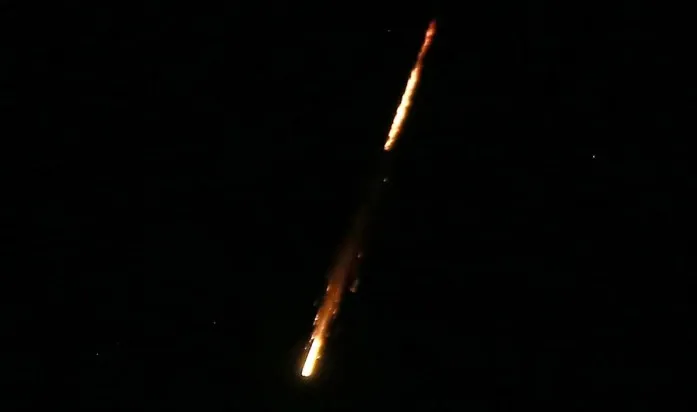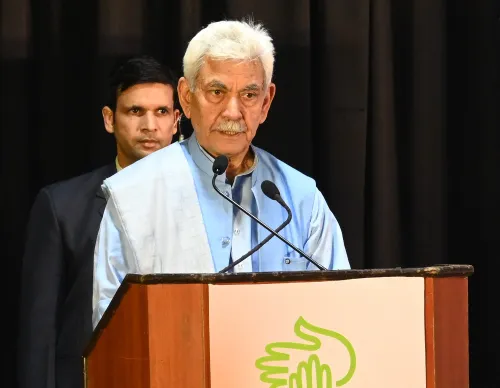What Led Iran to Launch a New Wave of Attacks on Israel?

Synopsis
Key Takeaways
- Iran's IRGC has launched a significant offensive against Israel.
- Missiles and drones were used in retaliation for Israeli airstrikes.
- The situation has resulted in casualties on both sides.
- Regional countries are taking precautionary measures.
- Diplomatic implications may affect future negotiations.
Tehran, June 15 (NationPress) The Islamic Revolution Guards Corps (IRGC) of Iran initiated a "large-scale combined offensive operation" targeting Israel, deploying a substantial arsenal of missiles and drones, according to various media reports.
Executed by the IRGC's aerospace division late Saturday night, the assault was characterized as a reaction to Israel's "persistent aggressions" against Iran, as reported by the IRGC's official news platform, Sepah News.
In Israel, a rocket impacted a residential building in a northern locality, resulting in the death of one woman and injuries to 13 others, as per Magen David Adom (MDA), Israel's national emergency medical service.
Additionally, several individuals suffered moderate to minor injuries, while four others were treated for anxiety, MDA stated.
Earlier in the day, MDA indicated that at least three individuals had lost their lives and 204 others were injured since the commencement of the Iranian offensive, according to Xinhua news agency.
In light of the recent wave of assaults, Israel's Home Front Command advised residents outside the Haifa and northern regions that they could leave bomb shelters but should stay near protected areas.
The Israeli military confirmed that its air defense systems were actively intercepting incoming threats, while Israeli air force units conducted strikes on military sites in Tehran.
Iran's Ministry of Petroleum acknowledged that two oil depots in Tehran were hit during the offensive.
Reports from residents indicated two powerful explosions in the capital, with the blasts felt in both the western and northern sectors.
The Ministry stated that the situation was "under control".
Meanwhile, Jordan temporarily closed its airspace late Saturday as a precaution following the Iranian missile strikes.
The Civil Aviation Regulatory Commission of Jordan announced that this measure was taken to safeguard civil aviation.
This Iranian offensive was launched in retaliation for Israeli airstrikes conducted early Friday, which targeted Tehran and several other urban centers.
Iranian officials claimed that the Israeli strikes led to the deaths of several senior military commanders, nuclear scientists, and numerous civilians.
Iran launched missiles at various targets across Israel, including the cities of Haifa and Tel Aviv, resulting in at least six fatalities, according to medical and media reports.
The assaults followed Israeli forces' bombings of civilian and energy facilities in Iran, which ignited a fire at the Shahran oil facility in Tehran.
The Israeli military stated that it targeted sites "associated with the Iranian regime’s nuclear weapons program".










